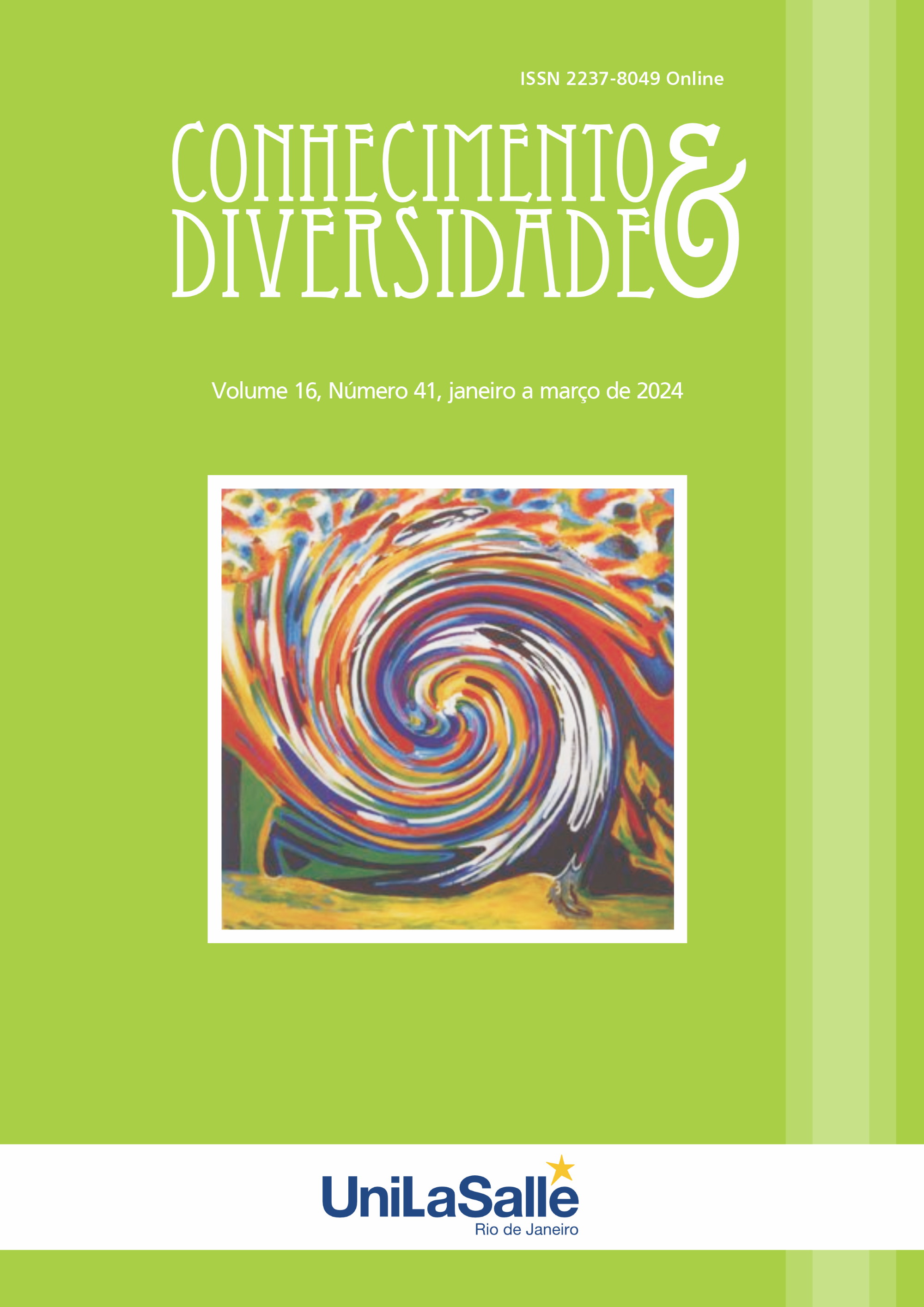DEVELOPMENT OF INTELLIGENT SYSTEMS FOR AUTOMATIC ASSESSMENT OF STUDENTS' ACADEMIC ACHIEVEMENTS
DOI:
https://doi.org/10.18316/rcd.v16i41.11437Palabras clave:
artificial intelligence, participants of the educational process, automation, objectivity, problemsResumen
to analyse the development of artificial intelligence systems for automatic assessment of students' learning achievements. Methodology: to achieve this goal, the scientific methods of analysis and synthesis, content analysis, SWOT analysis, comparison, and typology were used. Results: it has been established that among the key advantages is a significant increase in the objectivity of the assessment of students' knowledge and skills. It is important to consider the acceleration of the process of checking the results, which saves time and effort for teachers. Another important advantage is the provision of real-time feedback during assessment. Scientific novelty: It has been established that one of the major problems is the possibility of bias and inequality in the educational system. Given that intelligent systems are based on certain algorithms, any bias or false information in the initial data can lead to biased results. Additional challenges include the excessive mechanisation of the assessment process, which does not always allow for the individual characteristics of each student, as well as ensuring appropriate protection of personal data. Conclusions: Intelligent student assessment systems are a powerful tool in countering corruption schemes in the educational system, especially in developing countries.
Citas
AJAMI, Riad A.; KARIMI, Homa A. Artificial intelligence: opportunities and challenges. Journal of Asia-Pacific Business, p. 1-3, 2023. Available at: https://doi.org/10.1080/10599231.2023.2210239
ALAM SHER MALIK. Digital technology, artificial intelligence, and future of medical education. Journal of University Medical & Dental College, v. 12, n. 2, p. 4-5, 2021. Available at: https://doi.org/10.37723/jumdc.v12i2.622
ALAM, Ashraf. Employing Adaptive Learning and Intelligent Tutoring Robots for Virtual Classrooms and Smart Campuses: Reforming Education in the Age of Artificial Intelligence. У: ALAM, Ashraf. Lecture Notes in Electrical Engineering. Singapore: Springer Nature Singapore, 2022. p. 395-406. ISBN 9789811929793. Available at: https://doi.org/10.1007/978-981-19-2980-9_32
BAGUNAID, Wala; CHILAMKURTI, Naveen; VEERARAGHAVAN, Prakash. AISAR: Artificial Intelligence-Based Student Assessment and Recommendation System for E-Learning in Big Data. Sustainability, v. 14, n. 17, p. 10551, 2022. Available at: https://doi.org/10.3390/su141710551
CHEN, Lijia; CHEN, Pingping; LIN, Zhijian. Artificial Intelligence in Education: A Review. IEEE Access, v. 8, p. 75264-75278, 2020. Available at: https://doi.org/10.1109/access.2020.2988510
CHIU, Mia. Detected Affect During Online Mathematics Learning Mediate Self-Report Motivation Changes: Examining a Motivation-Affect Regulation Model. Futurity Education, v. 3, n. 2, p. 19–40, 2023. Available at: https://doi.org/10.57125/FED.2023.06.25.02
DARWISH, Ashraf. Explainable artificial intelligence: a new era of artificial intelligence. Digital Technologies Research and Applications, v. 1, n. 1, p. 1-10, 2022. Available at: https://doi.org/10.54963/dtra.v1i1.29
GIRÓ GRÀCIA, Xavier; SANCHO-GIL, Juana M. Artificial intelligence in education. Seminar.net, v. 17, n. 2, 2021. Available at: https://doi.org/10.7577/seminar.4281
KULKARNI, Trishul; TOKSHA, Bhagwan; GUPTA, Prashant. Applications of Artificial Intelligence in Learning Assessment. In: KULKARNI, Trishul; TOKSHA, Bhagwan; GUPTA, Prashant. Artificial Intelligence in Higher Education. Boca Raton: CRC Press, 2022. p. 95-111. ISBN 9781003184157. Available at: https://doi.org/10.1201/9781003184157-5
HUTSON, Matthew. Has artificial intelligence become alchemy? Science, v. 360, n. 6388, p. 478, 2018. Available at: https://doi.org/10.1126/science.360.6388.478
JOSHI, Shubham; RAMBOLA, Radha Krishna; CHURI, Prathamesh. Evaluating artificial intelligence in education for next generation. Journal of Physics: Conference Series, v. 1714, p. 012039, 2021. Available at: https://doi.org/10.1088/1742-6596/1714/1/012039
KNOX, Jeremy. Artificial intelligence and education in China. Learning, Media and Technology, v. 45, n. 3, p. 298-311, 2020. Available at: https://doi.org/10.1080/17439884.2020.1754236
KOOS, Stefan. Artificial intelligence – science fiction and legal reality. Malaysian Journal of Syariah and Law, v. 6, n. 3, 2018. Available at: https://doi.org/10.33102/mjsl.v6i3.135
LAIRD, John E.; LEBIERE, Christian; ROSENBLOOM, Paul S. A standard model of the mind: toward a common computational framework across artificial intelligence, cognitive science, neuroscience, and robotics. AI Magazine, v. 38, n. 4, p. 13-26, 2017. Available at: https://doi.org/10.1609/aimag.v38i4.2744
LAMPOU, Rania. The integration of artificial intelligence in education: opportunities and challenges. Review of Artificial Intelligence in Education, v. 4, n. 00, p. e015, 2023. Available at: https://doi.org/10.37497/rev.artif.intell.educ.v4i00.15
LEE, Hyun Suk; LEE, Junga. Applying artificial intelligence in physical education and future perspectives. Sustainability, v. 13, n. 1, p. 351, 2021. Available at: https://doi.org/10.3390/su13010351
MARIONO, Andi; SABAR. The Influence of School Management Information Systems and Teacher’s Social Competence on the Parent Satisfaction of Junior High School Students. Futurity Education, v. 3, n. 2, p. 75–98, 2023. Available at: https://doi.org/10.57125/FED.2023.06.25.05
MILLER, Tim. Explanation in artificial intelligence: insights from the social sciences. Artificial Intelligence, v. 267, p. 1-38, 2019. Available at: https://doi.org/10.1016/j.artint.2018.07.007
NOWAK, Barbara. Pomoc kobietom z nizin społecznych na terenie Krakowa, Kraków, PETRUS, 2017. ISBN 978-83-7720-496-2. Available at: https://ksiegarnia.pwn.pl/Pomoc-kobietom-z-nizin-spolecznych-na-terenie-Krakowa-1918-1939,737612994,p.html
PALSHKOV, Kostiantyn; KOCHUBEI, Olena; TSOKUR, Olga; TIAHUR, Vasyl; TIAHUR, Liubomyra; FILIMONOVA, Tetiana; KUZMINSKYI, Anatolii. The Role of Fundamentalization of Education in Improving the Future Specialists Professional Training with Usage of Multimedia Technologies. International journal of computer science and network security, v. 22, n. 9, p. 95-102, 2022. Available at: https://doi.org/10.22937/IJCSNS.2022.22.9.15
SEIN MINN. AI-assisted knowledge assessment techniques for adaptive learning environments. Computers and Education: Artificial Intelligence, v. 3, p. 100050, 2022. Available at: https://doi.org/10.1016/j.caeai.2022.100050.
SWIECKI, Zachari; KHOSRAVI, Hassan; CHEN, Guanliang; MARTINEZ-MALDANADO, Roberto; LODGE, Jason; MILLIGAN, Sandra; SELWYN, Neil; GASEVIC, Dragan. Assessment in the age of artificial intelligence. Computers and Education: Artificial Intelligence, p. 100075, 2022. Available at: https://doi.org/10.1016/j.caeai.2022.100075
TSOLI, Konstantina. Perception of Teachers on Entrepreneurial Education Before and After the Implementation of a Pilot Program. Futurity Education, v. 3, n. 3, p. 178–195, 2021. Available at: https://doi.org/10.57125/FED.2023.09.25.10
WOJCIECH, Walat; SOBCZYK, Wiktoria; WALDEMAR, Lib; POCHOPIEŃ, Jolanta. Future educator’s digital learning assets: global challenges of our time. Futurity Education, v. 1, n. 2, p. 32–41, 2021. Available at: https://doi.org/10.57125/FED/2022.10.11.17
Descargas
Publicado
Número
Sección
Licencia
Derechos de autor 2024 Yury Zavalevskyi, Svitlana Kyrilenko, Olga Kijan, Nataliya Bessarab, Svitlana Boiko

Esta obra está bajo una licencia internacional Creative Commons Atribución 4.0.
Tal como recomienda el Public Knowledge Project, RCD adopta para sus artículos una licencia CREATIVE COMMONS: Attribution CC BY 4.0
Esta licencia permite que otros distribuyan, remezclen, adapten y desarrollen su obra, incluso con fines comerciales, siempre que le atribuyan a usted el mérito de la creación original.
Esta es la licencia más adecuada que se ofrece.
Recomendado para la máxima difusión y utilización de los materiales bajo licencia.



